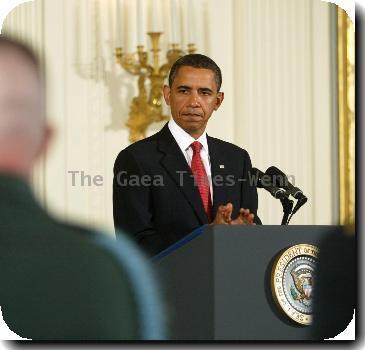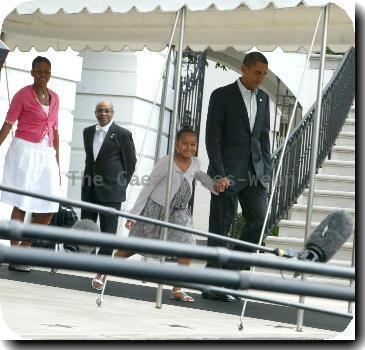Germany, Mexico hosting meeting of 45 nations in Bonn to push talks on climate deal ahead
By APFriday, April 30, 2010
Germany, Mexico trying to push climate talks ahead
BERLIN — Five months after the troubled United Nations conference in Copenhagen, Germany and Mexico are teaming up in an effort to break the deadlock in negotiations on a global climate deal.
They will co-host a three-day meeting in Bonn starting Sunday of representatives from a selected 45 countries with hopes of building trust and clearing some of the rubble left from Copenhagen, German Environment Minister Norbert Roettgen said this week.
“The most important thing is to get the process moving again,” he said.
Momentum in the drive to control global warming has slowed in some countries. The United States still has not tackled its domestic energy bill, which climate negotiators believe will provide a critical signal about U.S. global intentions; and Australia — one of the world’s biggest per capita polluters — put off for as long as two years legislation setting up a carbon trading scheme.
Roettgen said Germany and others have not entirely given up on striking a deal at the next U.N. climate summit in Cancun, Mexico, Nov. 29-Dec. 10.
“We want to pave the way to a good result in Cancun,” he said adding that “nobody wants another big disappointment.”
The Copenhagen conference with representatives from some 190 countries last December was originally intended to produce a new global treaty to cut greenhouse gases and set up mechanisms to deal with the worst effects of global warming. Yet, the two-week meeting came up with far less than hoped, setting back the schedule for action possibly by years.
President Barack Obama and a few dozen other major players drafted the so-called Copenhagen Accord which calls for global warming to be limited to below 2 degrees Celsius (3.6 Fahrenheit) compared with preindustrial times.
The accord, which also included an immediate $30 billion three-year aid package for poorer nations, failed to gain full support at the summit, however, as some smaller countries felt left out in the process and were unhappy with the results of closed-door negotiations.
An expert-level meeting in April in Bonn, intended to set the parameters and timetable of negotiations leading up to Cancun, descended into squabbling over procedural details, an indication that the discord of Copenhagen remains.
Though the smaller, informal negotiating format proved problematic in Copenhagen, Environment Minister Roettgen said Germany and Mexico decided to invite only the key players for the so-called Petersberg Dialogue, named after the Petersberg mansion high up above Bonn on the Rhine river.
“The international process is sounding the terrain for the proper negotiating format, and we think we have found the right format,” Roettgen said.
“We believe that trust building will serve the purpose best,” he said.
The meeting of some 45 environment ministers or high representatives from countries including the United States, China, India, South Africa and Brazil will be opened by Chancellor Angela Merkel and President Felipe Calderon Sunday afternoon.
Talks on Monday are to address the future of the U.N. process and all major elements of the envisioned climate treaty — such as cutting heat trapping gases, financing measures to soften the effects of climate change and to get poorer countries on track for low-carbon development, and measures to halt deforestation.
On Tuesday participants are to talk about “getting climate cooperation off the ground” — that is concrete joint projects of countries north and south to reduce emissions or fight the effects of global warming such as droughts or floods.
Roettgen called that a “parallel process of negotiation and action,” adding that such joint projects funded by the $30 billion aid package passed in Copenhagen can be finalized even before negotiations produce tangible results.
“We now have a pragmatic approach,” he said stressing, however, that this must not serve as an excuse to drag out U.N. negotiations.
The new global climate treaty has been in the making since 2007. It is to follow the Kyoto Protocol, which includes binding targets for industrial nations to reduce greenhouse gas emissions until 2012.
In contrast, the new treaty is to include all countries rich and poor in a global effort to safeguard Earth from overheating, even though developing countries will have to do less than industrialized nations.
One key issue is the role of China which has become the world’s largest emitter of greenhouse gases.
Tags: Barack Obama, Berlin, Bonn, Central America, Climate, Copenhagen, Denmark, Environmental Concerns, Environmental Policy, Europe, Events, Germany, International Agreements, Latin America And Caribbean, Mexico, North America, United States, Western Europe

